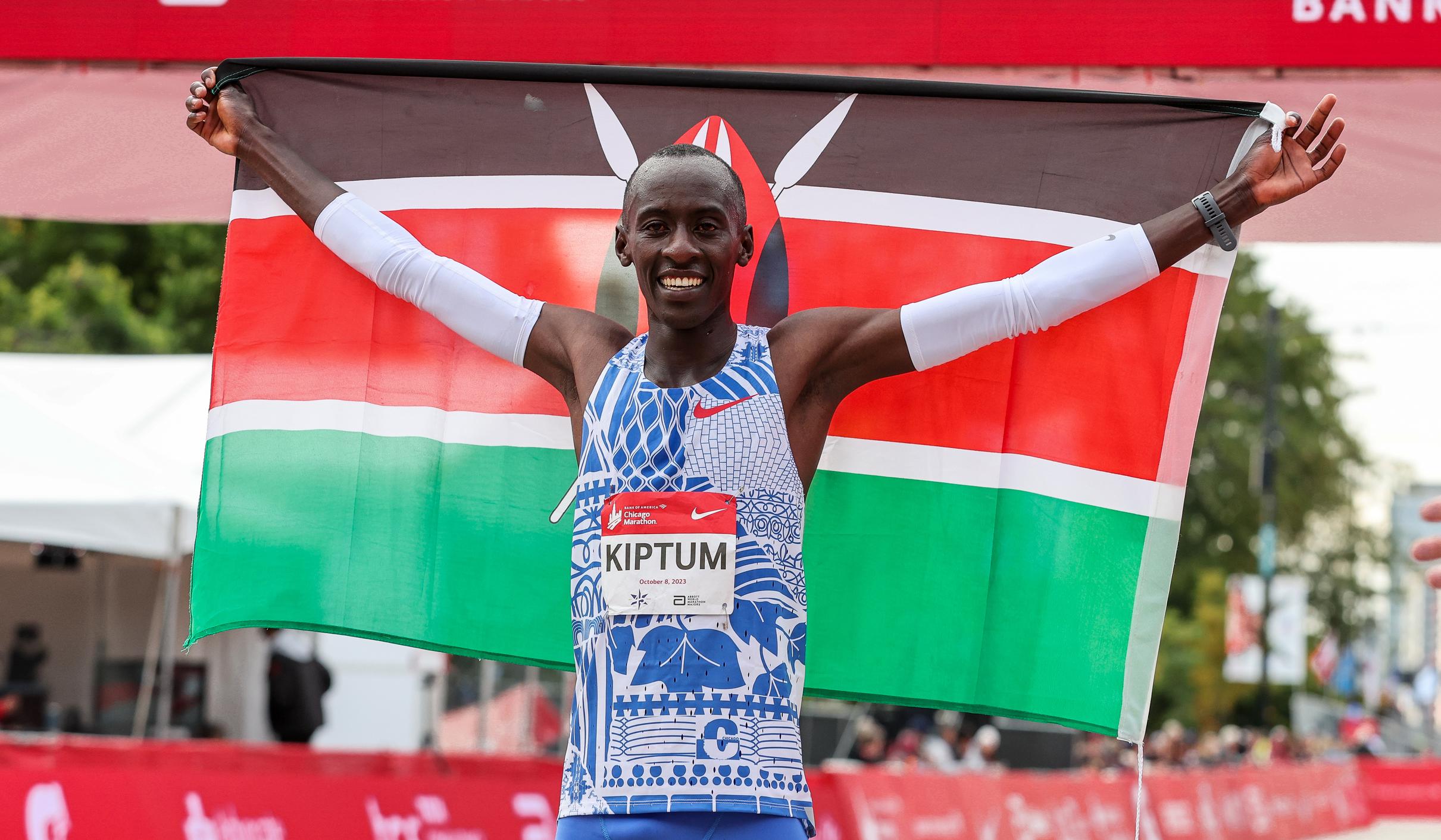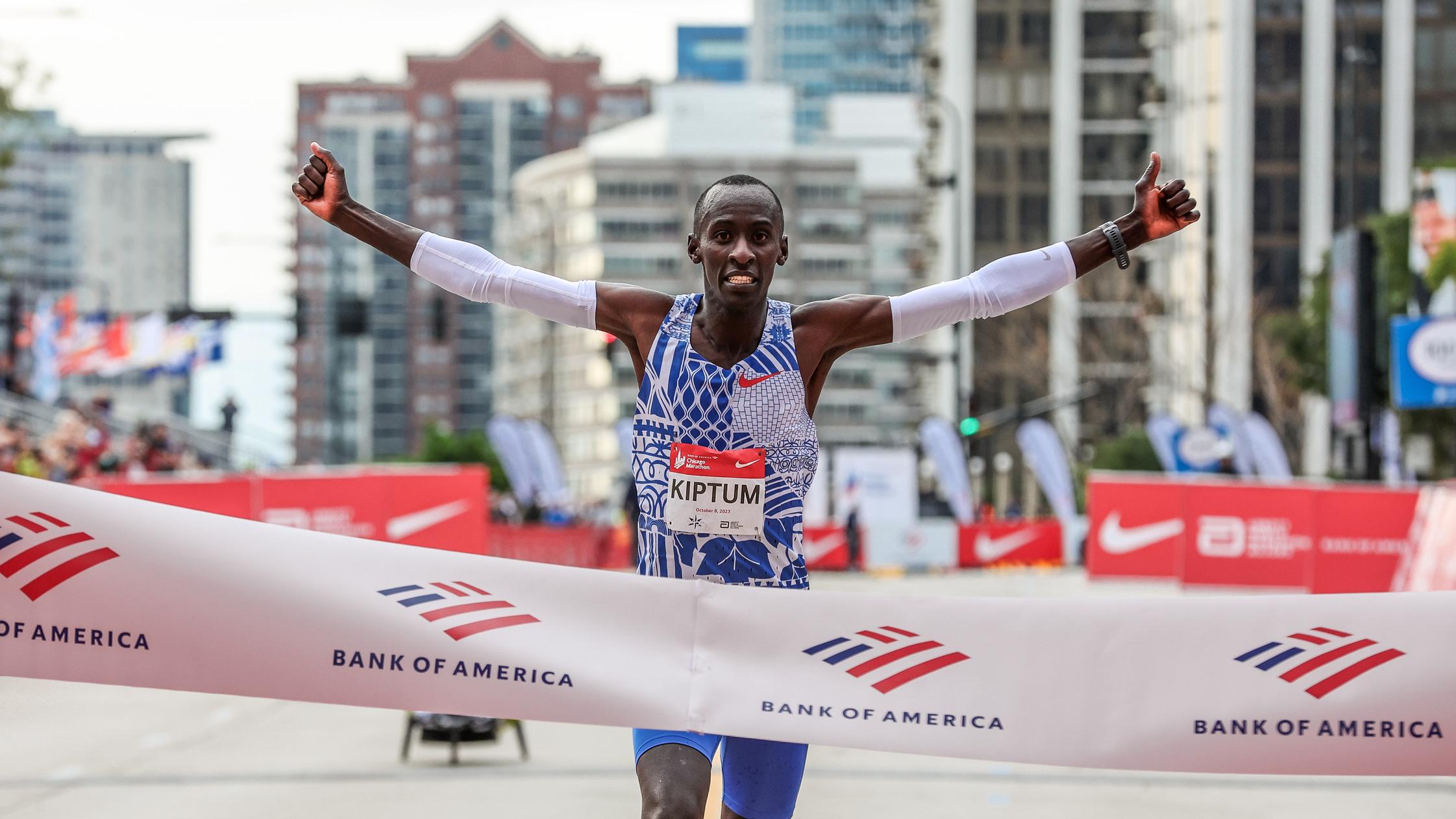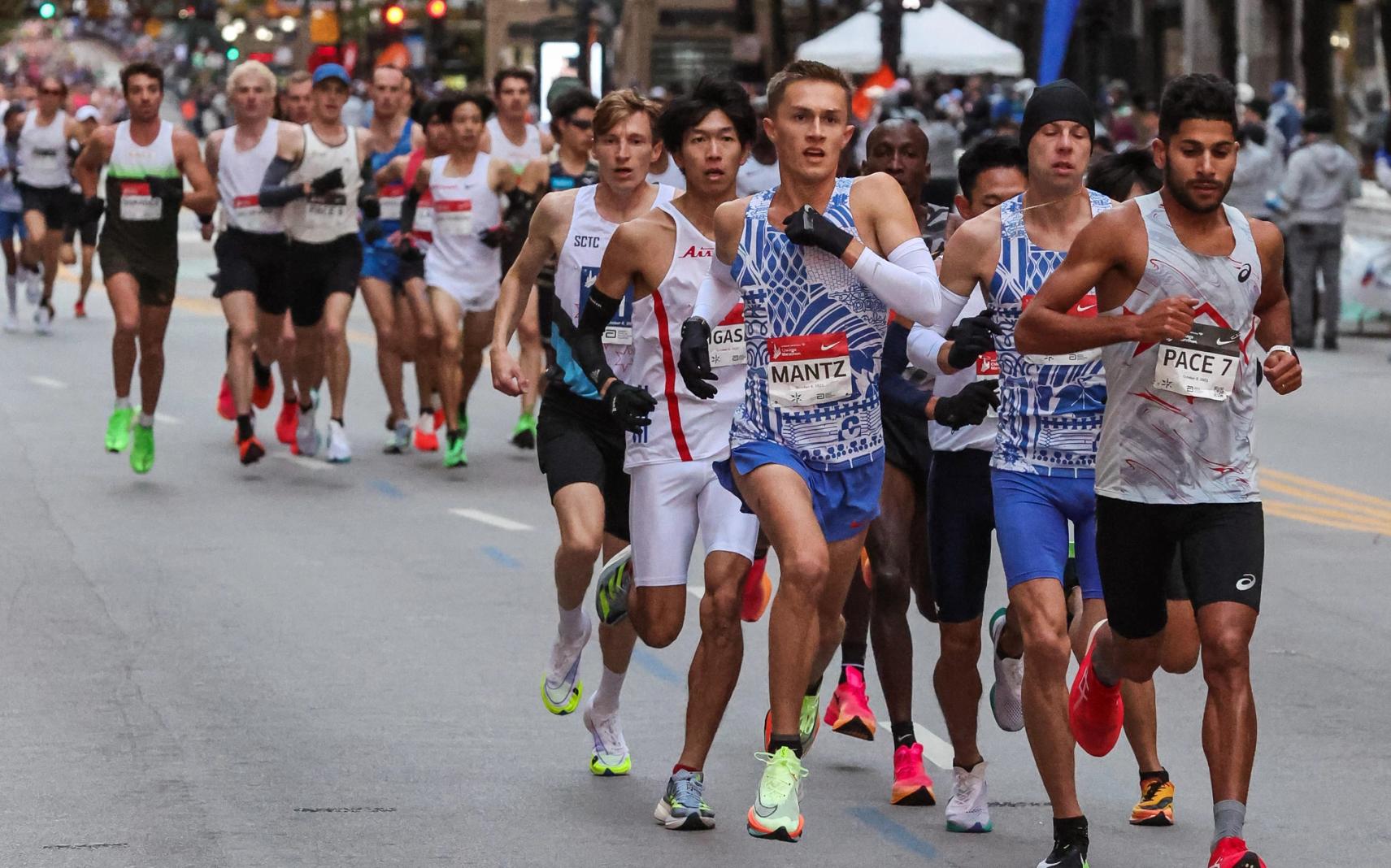By Kyle Merber
October 11, 2023
2 hours and 35 seconds.
Athens would have known about the victory at the Battle of Marathon a bit sooner had it been Kelvin Kiptum in Pheidippides’ position. (But with Pheidippides sporting the Nike Dev 163 prototypes, surely he’d have shaved a few minutes off, right?)
With Kiptum’s 4:36-paced performance, the 23-year-old relegates Eliud Kipchoge to “former world record holder” status after five years at the top. What a world we live in where Kipchoge’s 2:01:09 mark from Berlin last year is now just the second fastest marathon ever run! But is anybody really that surprised? Unlike in baseball, where we dare not even whisper about a potential perfect game until it happens, Kiptum’s potential was being shouted from the upper deck well before his first step on Sunday.
Kiptum simply hasn’t missed since last December when he first stepped to the 26.2-mile-long plate in Valencia and promptly became the fastest debutant ever, running 2:01:53 for the win. But it was his dominant 2:01:25 in London this past spring that brought Kiptum into the same conversation as Kipchoge and confirmed that he was for real. Has anyone ever been on a heater like this? Three marathons in ten months, with an average finishing time of 2:01:17.
It is one thing to run fast when everyone else is doing it – it’s another thing entirely to dominate an era where those times are being run. The margin of victory in Kiptum’s three performances was: 67 seconds, 178 seconds, and 207 seconds, over Gabriel Geay, Geoffrey Kamworor, and Benson Kipruto, respectively. Kiptum makes even studs look silly.
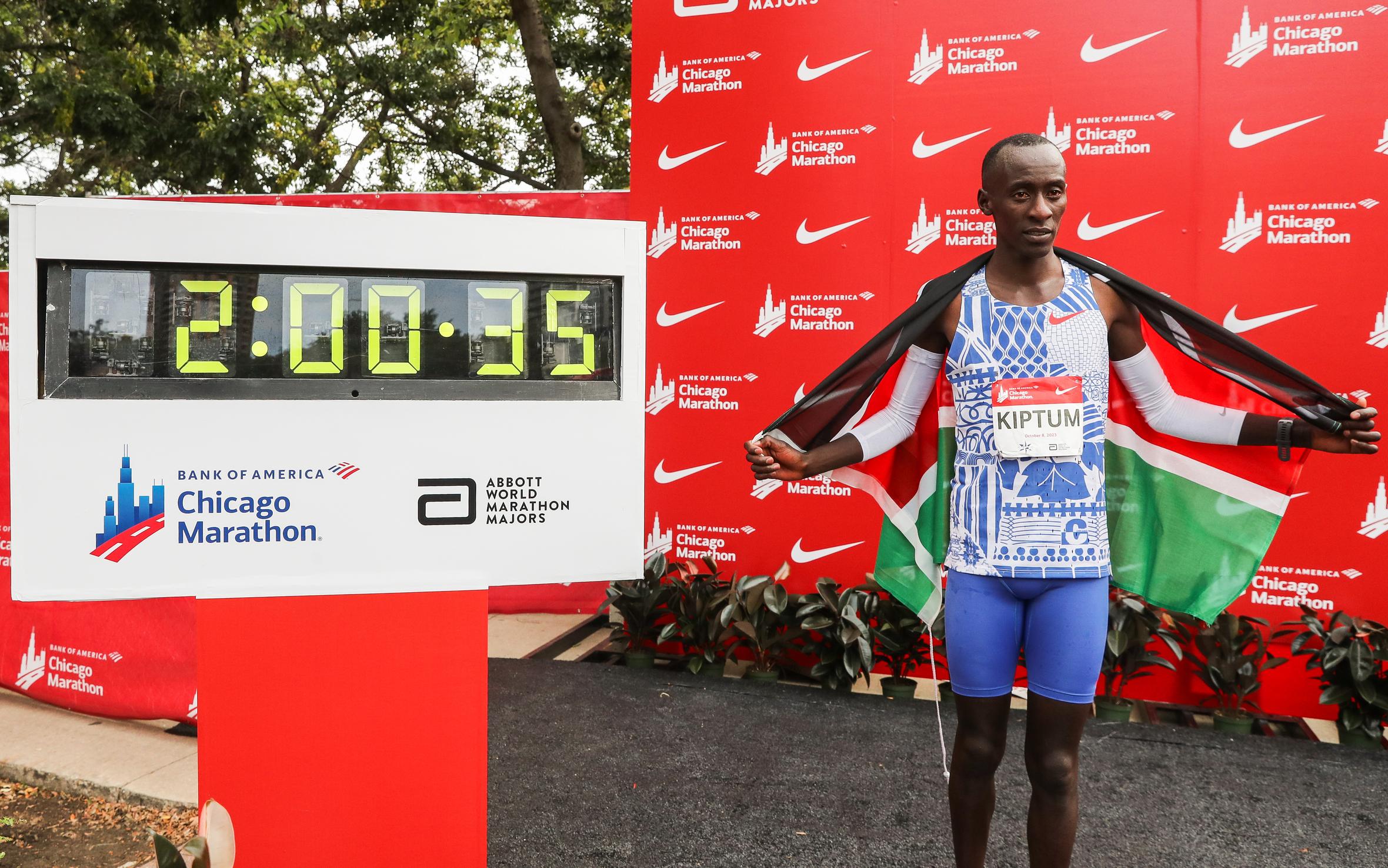
Kevin Morris / @KevMoFoto
Dominance and times aside, what made Kiptum’s run so special was the way he did it with intent and intelligence. He made a decisive move at the first bottle station at 5K that resulted in a breakaway. The only non-pacer to come with him was Daniel Mateiko, Kiptum’s rabbit in London who was now making his own debut. Kiptum was like a conductor, instructing the three-man pack – which also included a pacer – when to speed up and slow down, and encouraging them to follow the blue tangent line painted on the ground.
They came through the first half in 60:48, the pacer stepped off, and Kiptum and Mateiko ran side-by-side until a bit past 30K. When Kiptum moves it is violent, and his aggressive shift immediately broke Mateiko’s spirit in a bid for the world record. Mile 22 was a 4:18, and then it was over.
Alright, now what? How do we digest this world record, while our stomachs are still full from all the meaty performances we consumed in Berlin?
Firstly, we cannot call Kiptum the G.O.A.T. yet. That’s not how this works. He boasts a small and mighty resume right now but in order to lay claim to the title of “best marathoner in the world RIGHT NOW,” he needs to beat Kipchoge straight-up. And to be considered the best marathoner of all time, he needs to win ten more World Marathon Majors and a couple of Olympics.
The Kenyan Olympic team should be Kipchoge, Kiptum, and Evans Chebet. It’s a shame that all three men chose to do different marathons this fall (Chebet’s racing in New York), but that’ll make the Olympics that much more exciting. And as is often the case, I agree with Michael Johnson’s assessment that we need to keep competition at the center of the conversation. Unfortunately with athletes racing maybe once every four months, and with the best not overlapping, that becomes increasingly more difficult. Until this summer, hypotheticals are all we’ve got!
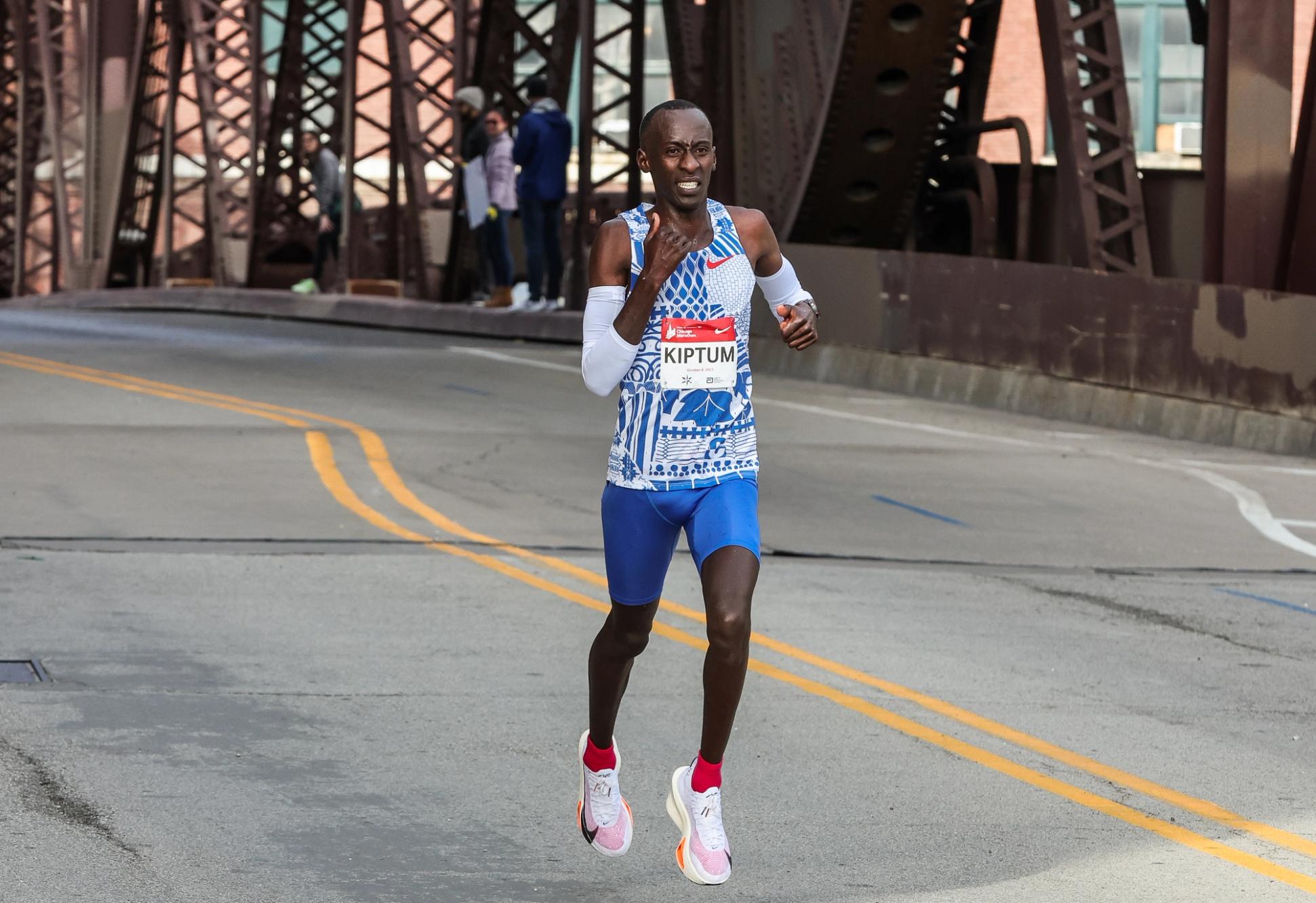
Kevin Morris / @KevMoFoto
The juxtaposition between us watching Kipchoge-the-marathoner grow up in front of our eyes like he’s the newest protagonist in The Truman Show, versus Kelvin Kiptum being dropped on Earth by a UFO visiting from outer space, makes for an intriguing storyline. Whereas Kipchoge was winning Worlds 15 years before ever breaking the marathon record, Kiptum hitting homers on the international scene seemed instantaneous.
How long until we start accusing Kelvin Kiptum of not being able to run over hills or bridges?
Although he was self-coached at the beginning of his career and was rumored to still be in London, it turns out he is not. That would have made for a really cool story though! Instead, it’s been shared that he is coached by Gervais Hakizimana, who competed for Rwanda and now lives in France.
According to this article, Kiptum runs upwards of 300km a week. (American math says that’s over 180 miles.) Like all good coaches, Hakizamana is worried about his athlete’s longevity: "I told him that in five years he'd be done, that he needs to calm down to last in athletics. "But imagine how good those five years will be!
We’ve seen the impact that Jakob Ingebrigtsen’s double threshold training methods have had on the track and field world. Could we be on the precipice of a similar shift on the roads? Right now, 120 to 130 miles per week seems like the sweet spot for a lot of American marathoners. But are we leveraging new shoe technology to its upper limits? And it’s not just about mileage, there is obviously intensity to it as well. I’m not saying a 4:18-late-race split means Kiptum is getting pulled by a bungee for overspeed training, but you don’t average 4:36 a mile for two hours without some turnover.
In so many ways, Kiptum still feels like a mystery. Hopefully, Nike will throw a PR campaign behind him so we can learn some more about the man. Like how has he never felt pain during a marathon and as a follow-up, how does it feel to live my dream?

Kyle Merber
After hanging up his spikes – but never his running shoes – Kyle pivoted to the media side of things, where he shares his enthusiasm, insights, and experiences with subscribers of The Lap Count newsletter, as well as viewers of CITIUS MAG live shows.
